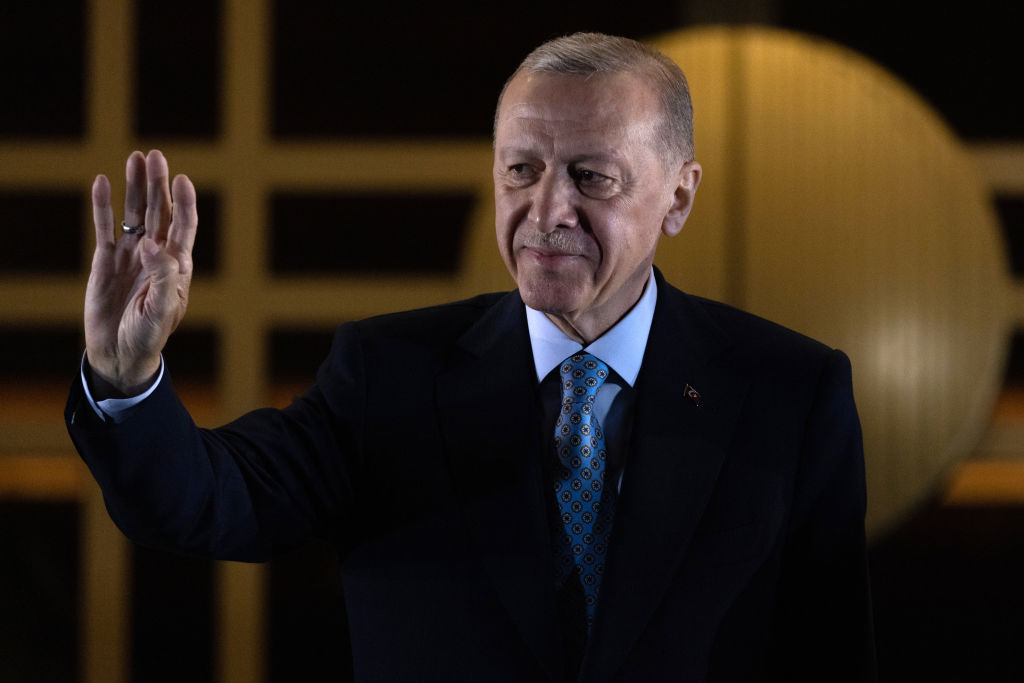
Recep Tayyip Erdogan, the controversial but democratically elected Turkish president, will continue at the helm of his country for the next five years. Last weekend’s electoral victory puts him in a stronger position than ever in shaping Turkey’s domestic and foreign policy settings as he deems desirable. Yet he is unlikely to have a free ride, given his polarising personality and Turkey’s fragile economic situation and complex foreign relations.
No matter what, Erdogan is the man of the hour. He has risen from a humble background, with strong Islamic convictions, to lead Turkey since 2003. Incrementally, he shepherded his country away from its secularist foundation, laid down by its all-powerful founder, Mustafa Kemal Ataturk, a century ago, to what is now a mixture of modern Islamist political culture and some secularist social freedoms within an increasingly authoritarian democratic framework. In the process, he has built an expanding popular power base, elevating him from a political streetfighter and elected reformist mayor of Istanbul, Turkey’s largest city and bridge between East and West, in the 1990s to become the leader of the Islamist Justice and Development Party (AK) that won the 2002 general election.
It was the first time that a religiously rooted party ended the secularist dominance of Ataturk’s Republican People’s Party in Turkish politics. Erdogan himself was convicted and imprisoned for inciting religious hatred in 1998. He was released the following year, but was banned from politics when AK won in 2002. However, his colleague Abdullah Gul kept the seat warm for him until AK used its parliamentary majority to overturn his conviction and enabled him to be elected in a by-election and assume AK’s leadership. After more than a decade as prime minister, he changed the parliamentary system of governance to a presidential one, scoring three consecutive election wins since then.
Erdogan has tirelessly sought to position himself as a strong, modern Turkish Islamist nationalist leader in the Muslim world and powerbroker between East and West. While maintaining Turkey’s membership of NATO, he has cosied up to Vladimir Putin’s Russia and nurtured good relations with Xi Jinping’s China. He has been critical of the US and some of its European allies for berating his authoritarian tendencies, which has gained him the title of ‘Sultan’ in the tradition of the Ottoman emperors. At the same time, he has derived economic, technological and strategic advantages from keeping a fairly firm foothold in the Western camp.
He has admonished the US and European allies for not strongly supporting his harsh crackdown on the opposition, especially in the wake of the aborted coup against him in 2016 and his handling of the Syrian refugee crisis. Meanwhile, he has used Turkey’s possession of the second largest military in NATO and the Russia card to deflect any major US and European allied retaliation. Similarly, while backing the sovereignty and territorial integrity of Ukraine, he has maintained good relations with Putin and sought to act as a peacemaker, which hasn’t paid dividends so far and positioned Turkey to benefit from Western sanctions imposed on Russia.
Erdogan has emerged as not only a powerful national actor, but also an icon of modern political Islamism and an influential player on the world stage.
However, the road from here is not necessarily going to be all that easy for him. In the recent election, he beat his main secularist rival, Kemal Kilicdaroglu, who stood for the restoration of Turkey’s democracy, by a small margin—52% to 48%. The Turkish electorate is extremely polarised, with nearly half of the population wanting to see the end of Erdogan’s rule. The opposition has been driven by the deteriorating economic situation. Turkey is suffering from hyperinflation, high unemployment and the virtual collapse of its currency, and what is regarded as an erosion of its democracy.
Erdogan’s opponents are also troubled by the degree of Islamism he has injected into Turkish politics and the complications he has generated in relations with Turkey’s traditional Western allies by leaning towards autocratic regimes in Russia, the Muslim Middle East and beyond.
Erdogan is now certainly positioned to keep steering Turkey in the direction that he has been going. But he also faces such serious challenges that he may not be able to overcome in the way that he has done in the past. Turkey is now in urgent need of national unity, economic and financial repair, and a foreign policy path that puts more emphasis on domestic stability and less on foreign policy adventures that could negatively affect its internal settings. Erdogan is a very seasoned politician and perfectly capable of doing that—if he wishes.

No comments:
Post a Comment